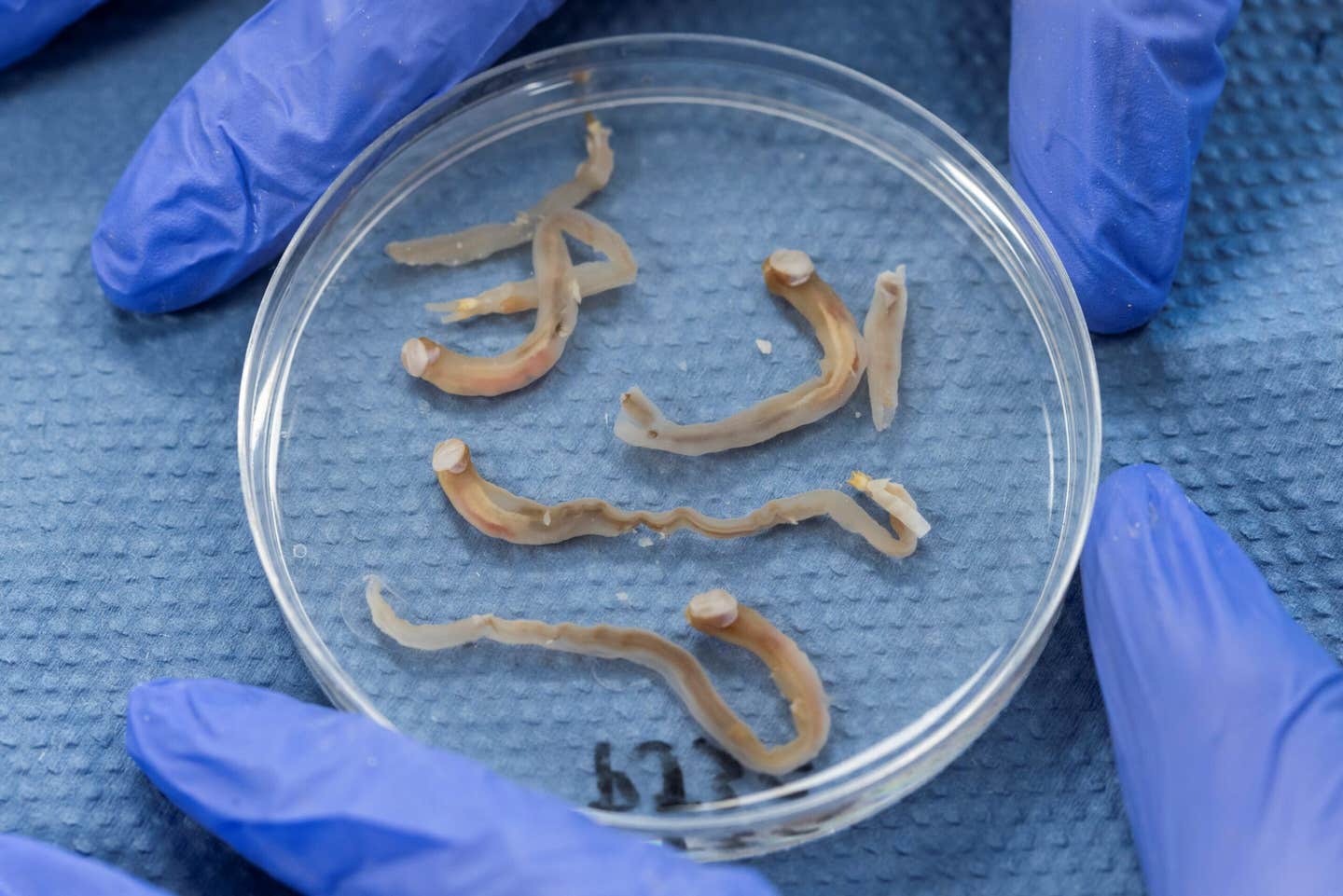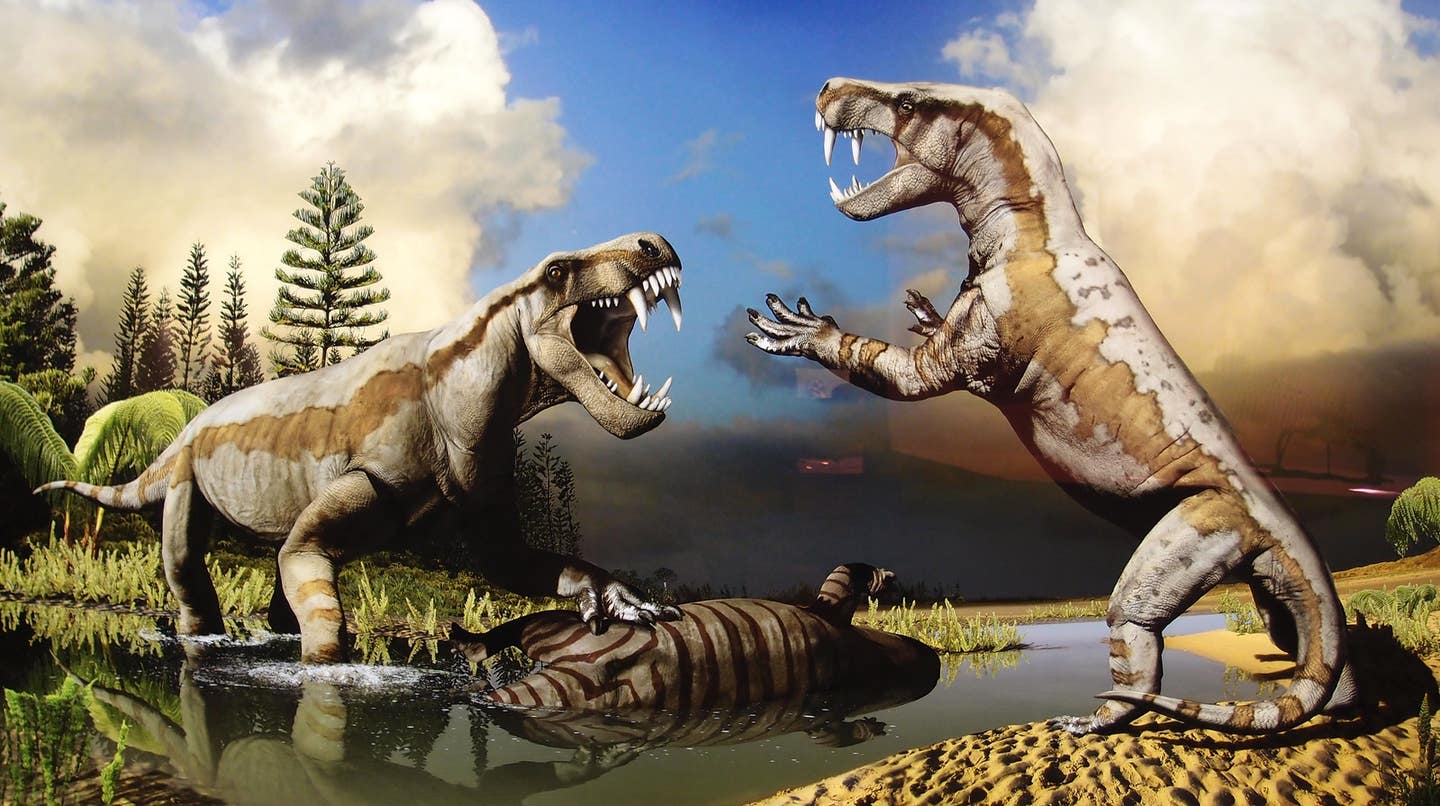Breakthrough aquaculture technology turns waste wood into nutritious seafood
Naked Clams taste like oysters, they’re highly nutritious, and they can be produced with a really low impact on the environment.

[Nov. 26, 2023: JJ Shavit, The Brighter Side of News]
Naked Clam juveniles in petri dish. (CREDIT: University of Plymouth)
In a groundbreaking study that could reshape the way we view marine pests and address pressing environmental and nutritional challenges, researchers have introduced the world to the "Naked Clam." These long, white saltwater clams, previously known as shipworms, have been rebranded and cultivated in the world's first shipworm farming system.
The innovative aquaculture approach not only transforms these notorious pests into a nutritious food source but also demonstrates their potential to revolutionize sustainable agriculture.
These marine marvels are not your typical bivalves. The Naked Clams, as they are now affectionately called, exhibit extraordinary growth rates, reaching up to 30cm in just six months. This remarkable feat is achieved through their unique ability to burrow into waste wood and convert it into highly-nutritious protein.
Dr. David Willer, Henslow Research Fellow at the University of Cambridge's Department of Zoology and the first author of the report, describes the newfound potential of Naked Clams: "Naked Clams taste like oysters, they're highly nutritious, and they can be produced with a really low impact on the environment."
Related Stories:
The key to their nutritional appeal lies in their high levels of Vitamin B12, surpassing most other bivalves and even doubling the content found in blue mussels. Moreover, by incorporating an algae-based feed into their farming system, Naked Clams can be fortified with omega-3 polyunsaturated fatty acids, essential nutrients for human health. These qualities position Naked Clams as a promising source of essential nutrients for health-conscious consumers.
Traditionally, shipworms have been perceived as a menace to maritime structures, boring through wood immersed in seawater, including ships, piers, and docks. However, the researchers have developed a fully-enclosed aquaculture system that not only eliminates water quality and food safety concerns but can also be adapted for urban settings far from the sea. This modular design not only paves the way for sustainable aquaculture but also provides an inventive solution to repurpose waste wood that would otherwise end up in landfills or recycling facilities.
Clams in wooden growth panel. (CREDIT: University of Plymouth)
Scientifically classified as Teredinids, Naked Clams, although lacking the conventional bivalve shell, belong to the same category as oysters and mussels. Their ability to forego the energy-intensive process of shell growth enables them to grow at a rapid pace, significantly outpacing mussels and oysters, which can take up to two years to reach a harvestable size.
The groundbreaking research on Naked Clams is featured in the journal Sustainable Agriculture, marking a significant milestone in the quest for sustainable and nutritious food sources. Dr. Reuben Shipway, senior author of the report and a researcher at the University of Plymouth's School of Biological & Marine Sciences, emphasizes the need for alternative food sources with a rich micronutrient profile while minimizing environmental costs. He states, "Switching from eating beef burgers to Naked Clam nuggets may well become a fantastic way to reduce your carbon footprint."
Naked Clams grown in a simple modular aquaculture system fed only wood. An 82 mm Teredo navalis individual, removed from the wood. (CREDIT: npj Sustainable Agriculture)
Intriguingly, while wild shipworms have long been a culinary delight in the Philippines, where they are consumed either raw or battered and fried like calamari, the researchers believe that Naked Clams will find a more receptive audience in the UK as a 'white meat' substitute in processed foods such as fish fingers and fishcakes. This shift towards alternative, sustainable protein sources could have a profound impact on global dietary habits and the environment.
The ambitious research initiative is a collaborative effort between the Universities of Cambridge and Plymouth, made possible through generous funding from organizations including The Fishmongers' Company, British Ecological Society, Cambridge Philosophical Society, Seale-Hayne Trust, and BBSRC.
Feed assimilation efficacy of Naked Clams under different dietary regimes. (CREDIT: npj Sustainable Agriculture)
With these resources, the research team is currently exploring various types of waste wood and algal feed to optimize the growth, taste, and nutritional profile of Naked Clams. They are also working closely with Cambridge Enterprise to scale up and commercialize the innovative aquaculture system.
The potential benefits of Naked Clams extend far beyond their delicious taste and exceptional nutritional value. As we face mounting environmental challenges and the need to secure sustainable food sources, this pioneering research offers a glimpse into a more promising future. By transforming marine pests into a sustainable superfood, Naked Clams could play a pivotal role in addressing global nutrition and ecological concerns, one delectable bite at a time.
Note: Materials provided by The Brighter Side of News. Content may be edited for style and length.
Like these kind of feel good stories? Get the Brighter Side of News' newsletter.
Joseph Shavit
Head Science News Writer | Communicating Innovation & Discovery
Based in Los Angeles, Joseph Shavit is an accomplished science journalist, head science news writer and co-founder at The Brighter Side of News, where he translates cutting-edge discoveries into compelling stories for a broad audience. With a strong background spanning science, business, product management, media leadership, and entrepreneurship, Joseph brings a unique perspective to science communication. His expertise allows him to uncover the intersection of technological advancements and market potential, shedding light on how groundbreaking research evolves into transformative products and industries.



